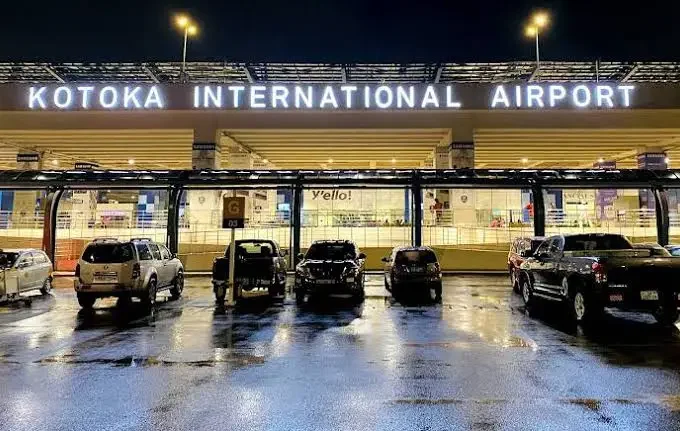
South Africa Offers Refuge to Gaza Survivors While Powering Their Oppressors With R3.3bn in Weapons

South Africa’s decision to take in 160 undocumented Palestinians fleeing Gaza has once again highlighted the contradictions shaping its foreign policy-just as the country is coming under increasing scrutiny for its expanding arms exports. The juxtaposition of a highly visible humanitarian gesture with an active role in the global arms trade reopened the question of moral consistency at the center of Pretoria’s international stance.
President Cyril Ramaphosa confirmed the arrival of the refugees at O.R. Tambo International Airport, saying that South Africa “could not turn them back” and emphasizing the need for “empathy” and “compassion” toward people escaping a “strife-torn, war-torn country.” This move comes amid South Africa’s diplomatic drive on Gaza, especially with its ongoing case of genocide against Israel at the International Court of Justice.
But the country’s own arms-export profile casts a long shadow. In 2023, South Africa approved R3.3 billion in arms sales to nations that count among Israel’s largest military suppliers, particularly the United States and Germany. Analysts warn these exports could be re-directed to Israel or used to replenish stockpiles for allies continuing to arm the conflict. The possibility of South African-manufactured weapons indirectly feeding the same war Pretoria condemns does not sit well alongside its calls on states to halt all arms transfers to the parties involved.
READ MORE: World’s Largest Mining Project Begins Production in Guinea
The arrival of the Palestinian group plays out within a larger global context in which refugees are increasingly deployed as a tool of political leverage. Displaced people around the world are used to help force negotiations, wring concessions or deflect blame-as was the case with Turkey’s long-standing deployment of its large refugee population in dealings with the European Union. This sort of politicking is logically inextricable from the global arms economy, which feeds on a cycle whereby manufacturers profit first off the weapons fueling wars and then again off border fortifications and surveillance systems erected to contain the people those wars displace.
For South Africa, that cycle exposes a widening gap between humanitarian aspiration and industrial reality. By exporting weapons to countries deeply embedded in the Gaza conflict-and without stronger guarantees on end-user compliance-Pretoria risks feeding the same mechanisms of violence and displacement it denounces on the world stage. There is no legal barrier preventing arms-exporting countries from accepting refugees, but such juxtaposition underlines a moral tension: South Africa presents itself as a defender of human dignity, yet its arms industry may be contributing-however indirectly-to the conditions that drive people from their homes. Until stricter oversight ensures that South African-produced weaponry cannot be used to sustain the conflict, the country will continue to wrestle with a contradiction at the heart of its foreign policy.
About The Author
Related Articles
Ghana to Rename Kotoka International Airport
Ghana’s government is preparing to rename the country’s main international gateway, Kotoka...
ByWest Africa WeeklyFebruary 4, 2026Russia Congratulates Ibrahim Traoré on Assuming AES Presidency
Russia has congratulated Burkina Faso’s President, Captain Ibrahim Traoré, on his assumption...
ByWest Africa WeeklyFebruary 4, 2026AES Condemns Niamey Airport Attack, Warns of Coordinated Destabilisation
The Alliance of Sahel States has strongly condemned the armed attack on...
ByWest Africa WeeklyFebruary 2, 2026Mali Cedes Strategic Land to Guinea to Deepen Trade Cooperation
Mali has approved the transfer of a strategic parcel of land to...
ByWest Africa WeeklyFebruary 2, 2026












Leave a comment